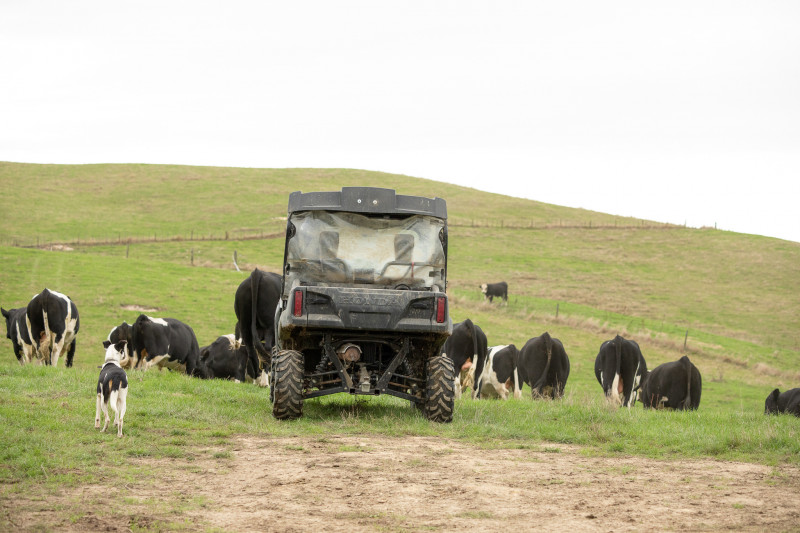Returning to sheep and beef industry roots
3 June 2021
Sheep and beef farming is in the blood for Primary ITO training adviser Ginny Tocher, and she’s using her experience to help learners grow their careers on the farm.
Ginny lives on a lifestyle block near Hamilton but being born and raised on a Southland sheep and beef farm she has a love of the land and livestock as well as a deep understanding of the practicalities of everyday farming.
Since joining Primary ITO in 2012, Ginny has worked as an adviser in the equine and dairy industries before getting back to her sheep and beef industry roots. Her area now covers from South Auckland, Coromandel, Waikato, much of the King Country and down to Awakino.
This is predominately hill country, so she is working with shepherds, block managers, general managers and owners of breeding and finishing farms with just a few beef finishing operations in the mix.
The ages and stages of her students vary from school leavers through to late 30s. Many of the latter are career changers who are reasonably new to the industry.
“Many of them have come off a farm so they have some skills, but all of the people I work with are very passionate about the sheep and beef industry.”
Ginny acknowledges that one of the challenges with the industry is that it does not have the same clearly defined career pathway as sectors such as dairy. However, there are still plenty of opportunities for career progression as shepherds move on to block managers, general managers and equity partnerships.
“The whole set up is different. Dairy farms often have a team of employees, whereas sheep and beef farms only have a limited number of staff so the owners cannot afford to risk employing unskilled people.”
Ginny’s role is to work alongside both employer and employee to grow and develop skills and help identify any skill gaps.
“It’s very much a triangular relationship between me as the training adviser, the employer and employee.”
Ginny encourages employers to be involved in the programme and ensure the learners are carrying out farm tasks to an acceptable standard.
She is focused on growing awareness of the Primary ITO programmes available in the sheep and beef industry, and as these are now supported by government funding, she is hoping to get even greater buy-in from a sector that is always calling out for skilled staff.
Shane Hill oversees Tainui Group Holding’s four drystock farms, including two sheep and beef properties, one bull finishing operation, and a dairy support block.
Having studied through Primary ITO himself, Shane is a great fan of the programmes and he encourages staff to take the opportunity to gain some qualifications while they are working on Waikato-Tainui farms.
He says it is part of the commitment of Waikato-Tainui to growing people within their business to help fund the programmes if staff choose to study while they are working.
Shane says Primary ITO benefits their business hugely. “It works really well for our business.”
He feels confident that staff who have completed Primary ITO programmes have the knowledge and skills to complete the jobs asked of them, from everyday management tasks through to putting together feed budgets.
Luke Foster is the farm manager at Hangawera Station, having worked up through the ranks from a shepherd’s position.
 Although he arrived at Hangawera armed with a Bachelor of Agricultural Commerce and skills gleaned from being brought up on a sheep and beef farm, Luke says he found Primary ITO programmes extremely valuable.
Although he arrived at Hangawera armed with a Bachelor of Agricultural Commerce and skills gleaned from being brought up on a sheep and beef farm, Luke says he found Primary ITO programmes extremely valuable.
“It gives you more of the hands-on knowledge that you don’t get at university. Skills such as feed budgeting that you need for career progression.”
Luke, who would ultimately like to bring all of his practical skills and academic knowledge together and work as Farm Consultant, values Ginny’s help and advice in guiding his study.
“She’s great at pointing me in the right direction based on what I’ve already done.”
As of 1 July 2020, the Government is covering training fees until 31 December 2022, so there’s never been a better time to connect with Ginny. Phone 029 201 4616 or email virginia.tocher@primaryito.ac.nz
